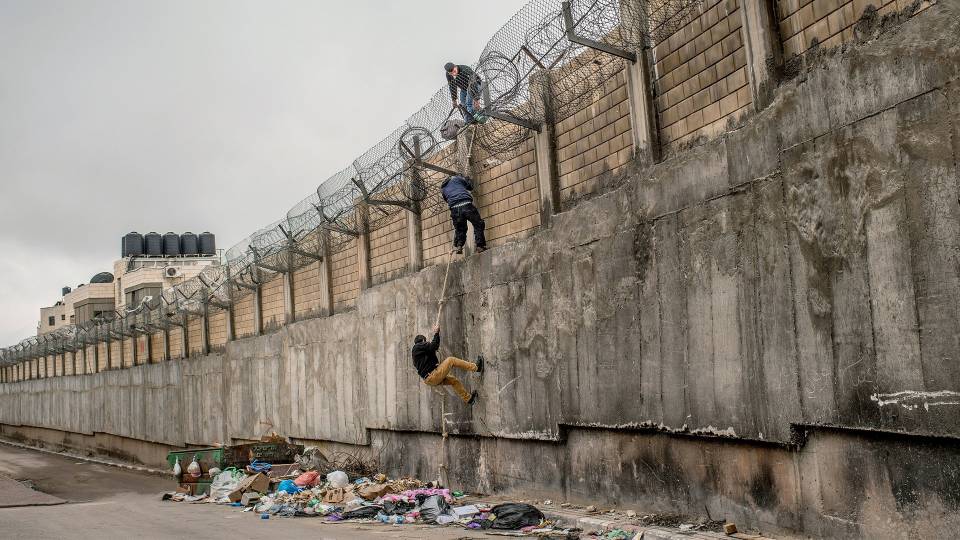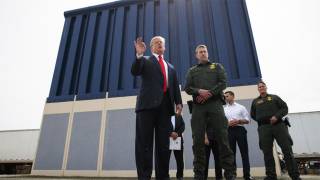Trump Proposes Citizenship for Dreamers in Exchange for Wall, Other Concessions
President Donald Trump proposed a path to citizenship for 1.8 million undocumented immigrants brought to the U.S. as children, if lawmakers agree to create a $25 billion fund to expand barriers along the Mexican border and implement other deep changes to the immigration system.
The White House suggested the proposal moved Mr. Trump a step closer to the Democrats, who have championed the cause of the young immigrants known as Dreamers, but the plan includes demands they have fiercely opposed. The Trump plan also risks the ire of hard-liners who oppose any such pathway to citizenship.
The White House proposal, presented to Senate leaders and congressional aides on Thursday, would restrict family-based immigration, the channel by which most immigrants have come to the U.S. for the past half-century. It also calls for an end to a lottery program that randomly awards 50,000 green cards annually to foreigners from countries underrepresented in U.S. immigration.
Mr. Trump was in Davos, Switzerland, for the World Economic Forum on Thursday. His top aides told Senate Majority Leader Mitch McConnell that the president would sign into law legislation that included these changes. Mr. McConnell said he would bring a bill to a vote during the week of Feb. 5, White House officials said.
It wasn’t clear whether Mr. McConnell could find sufficient support. To reach the 60 requires votes for such measures to pass, he will need backing from most Republicans, who hold 51 seats, and some Democrats. Passage in the House was also in doubt, with opposition from Democrats expected over policy changes and border-wall funding, and opposition from conservatives over a pathway to citizenship for undocumented immigrants.
Mr. Trump’s multipart plan contrasts with calls from some on Capitol Hill, including Senate minority leader Chuck Schumer (D., N.Y.) for a deal largely centered on just two issues: the fate of the Dreamers and border security.
Mr. Trump’s proposal would offer a path to citizenship within 10 to 12 years for 1.8 million Dreamers—people whose parents brought them to the U.S. illegally as children. About 700,000 Dreamers were shielded from deportation under the Deferred Action for Childhood Arrivals program created by former President Barack Obama in 2013.
In September, Mr. Trump ended the program, known as DACA, but gave Congress until its expiration on March 5 to replace it. The rest of the immigrants aren’t enrolled in DACA but could have qualified.
“This represents a dramatic concession by the White House to get to 60 votes from the Senate,” a senior administration official said, describing the bill as a “compromise on many fronts.”
But Mr. Trump’s broad-reaching proposal ran counter to the mood on Capitol Hill Thursday, where lawmakers have been trying to narrow the parameters of negotiations to boost their chances of being able to cut a deal.
The White House framework was released shortly after senators scattered for the weekend and while the House is on a week-long recess. But earlier Thursday, both Democrats and Republicans had been advocating winnowing the scope of the immigration talks to focus primarily on border security and addressing the fate of the Dreamers.
“As we found time and again, when we open up the negotiations to discussions of broad immigration reform, there is no end to what each party says could be on the table,” Mr. Schumer said on the Senate floor Thursday. “We should find a narrow deal on DACA and border security.”
Read the rest here.






















